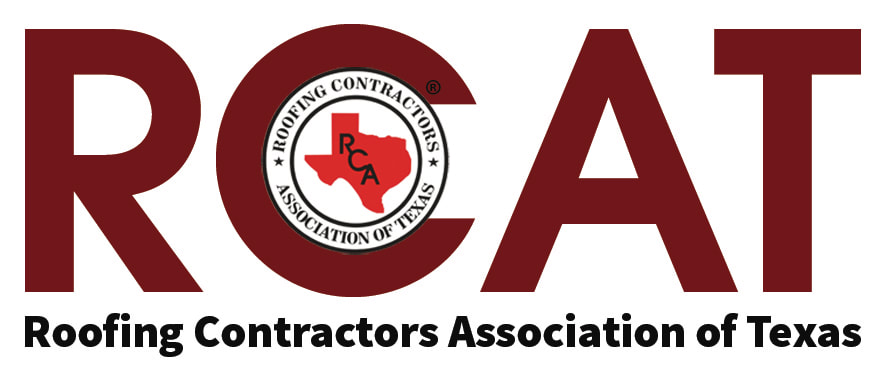Become A Licensed Roofer In Texas
LICENSED ROOFING CONTRACTOR PROGRAM
The "License" referenced below is provided through and fully managed by the Roofing Contractors Association of Texas.
INTRODUCTION: The Texas Department of Licensing & Regulation does NOT currently administer licensure for roofing contractors. Anyone can call themselves a roofer in Texas and they are not required to be knowledgeable, insured, licensed, or even registered with the state. Roofing is a highly skilled trade and the roof is structurally the most important component protecting the contents and integrity of the home or business! Texas residents deserve a higher standard so the RCAT Licensed Roofing Contractor program was developed to increase consumer protection and secure public confidence in the roofing industry by elevating the roofing contractor’s knowledge and professionalism through voluntary self-regulation.
WHO IS TO BE LICENSED: Individuals are to be licensed, not companies, however the license holder must own, operate or manage a qualifying roofing company to participate in the program. That company may then market themselves as "licensed." Licensing is available for both Residential and Commercial Roofing Contractors; a Contractor can choose to apply for licensing in one or both categories. Licensing is open to all Roofing Contractors in Texas who meet the qualifications required on the application.
INTRODUCTION: The Texas Department of Licensing & Regulation does NOT currently administer licensure for roofing contractors. Anyone can call themselves a roofer in Texas and they are not required to be knowledgeable, insured, licensed, or even registered with the state. Roofing is a highly skilled trade and the roof is structurally the most important component protecting the contents and integrity of the home or business! Texas residents deserve a higher standard so the RCAT Licensed Roofing Contractor program was developed to increase consumer protection and secure public confidence in the roofing industry by elevating the roofing contractor’s knowledge and professionalism through voluntary self-regulation.
WHO IS TO BE LICENSED: Individuals are to be licensed, not companies, however the license holder must own, operate or manage a qualifying roofing company to participate in the program. That company may then market themselves as "licensed." Licensing is available for both Residential and Commercial Roofing Contractors; a Contractor can choose to apply for licensing in one or both categories. Licensing is open to all Roofing Contractors in Texas who meet the qualifications required on the application.
|
JOIN OUR ONCE A YEAR IN-PERSON SESSION!
During RCAT's Annual Texas Roofing Conference September 12 - 13, 2024 we will be holding a special in-person session for NEW licensing applicants. SPACE IS VERY LIMITED! The Boot Camp class on Thursday September 12 is designed to help you prepare for the exams. The exam session is on Friday September 13. You will also receive an all access pass to the Conference events! ALL APPLICANTS MUST BE PRE-APPROVED FOR THE PROGRAM BEFORE THE SESSION. WALK-INS WILL NOT BE ALLOWED! Application deadline is August 30 at 5 PM. |


